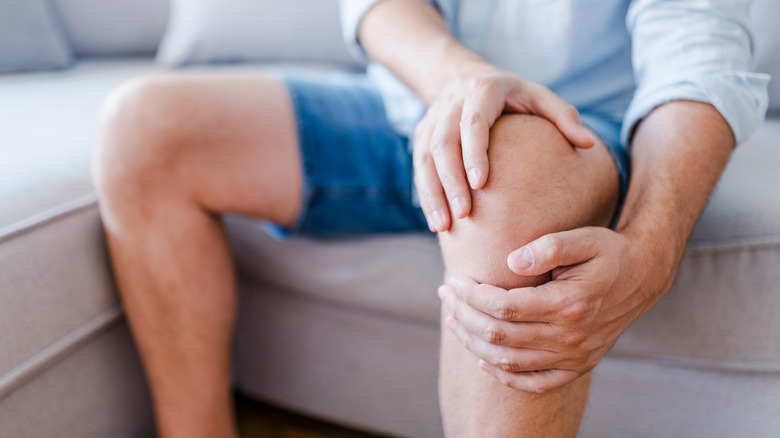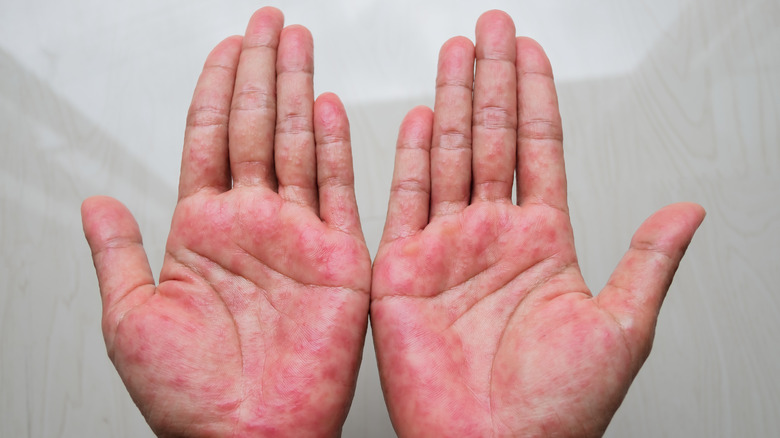Why Your Arthritis Might Not Be What You Think
When your joints start to ache, your first instinct is to reach for a painkiller or something to dull the ache. You might even reach for a hot or cold compress, depending on the type of pain. And for some people, a good grumble about the weather helps ease their discomfort. But when you have arthritis, these solutions might now be enough.
Most people view arthritis as a natural part of aging. They believe that it only happens when people reach a certain age and is just what happens when a body gets older. And in most cases this is true. Rheumatoid arthritis can strike at any age, though the CDC says that a person's risk goes up as they age. But there is another form of arthritis that might set in, one most people don't know to look out for.
While most people worry about arthritis in their hands, those who experience knee or hip pain might have a condition known as reactive arthritis. It's a form of arthritis that typically only affects the joints in your lower body. This condition is most often caused by infections in the genitals, urinary tract, or the gut. This may explain why it affects lower body joints so aggressively. And it comes with a host of other inflammation-related issues that really set it apart from other forms of arthritis.
What sets reactive arthritis apart
The Arthritis Foundation says that reactive arthritis is caused by bacteria picked up either from spoiled food or through sexual transmission. Chlamydia is one specific strain mentioned by Johns Hopkins Medicine. Whether infection occurs through food or sex, however, the outcome is the same. The body deals with the infection directly and then, one to four weeks after infection, reactive arthritis sets in (via Mayo Clinic). Symptoms can come and go, but generally last anywhere from a few months to a year before vanishing completely. Some patients do develop chronic issues, but it's rare.
Joint pain and swelling are the two most obvious symptoms, and the pain's location is the tell-tale difference between standard arthritis and reactive arthritis. There are, however, several other symptoms unique to this form of the disease. The National Institute of Arthritis and Musculoskeletal and Skin Diseases lists three other main symptoms of reactive arthritis. They include irritation or swelling in the eyes that may produce redness, rashes on the palms and soles of the hands and feet, sores around the mouth, and an inflamed urinary tract or genital area.
Mayo Clinic adds that reactive arthritis can also cause swollen fingers or toes, lower back pain, and an increase in urination frequency. It may also cause an inflamed cervix or prostate, regardless of whether the original infection was sexual or not.
Although the symptoms go away on their own, antibiotics can speed up the process and anti-inflammatory drugs can help dull the pain. It's a rare condition, but it is painful and something that should be taken to a medical professional.


